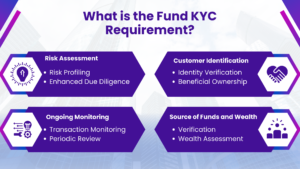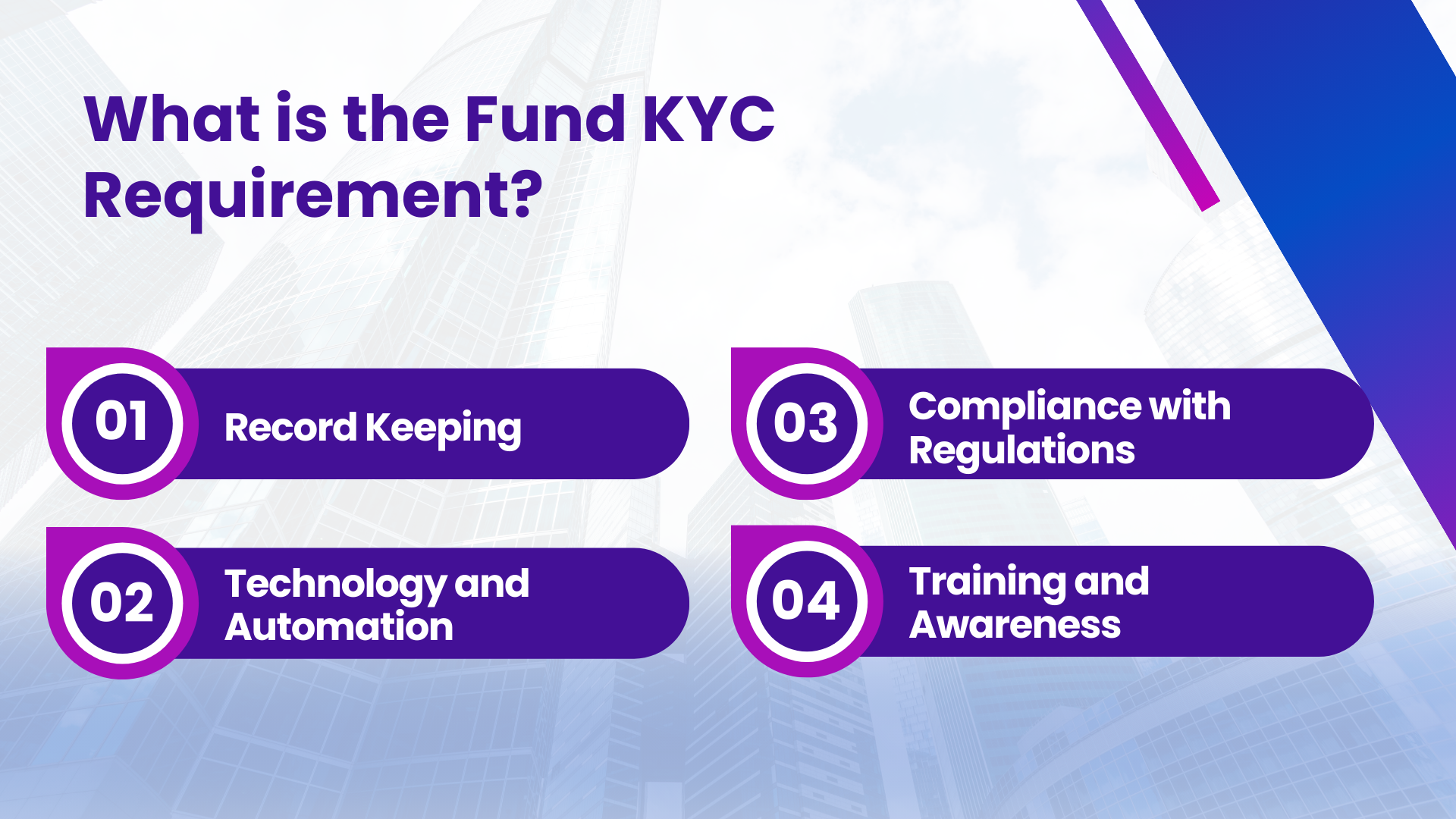Fund KYC Requirements in Singapore: What Investment Funds Need to Know
The government of Singapore actively enforces financial regulations through strict Fund KYC Requirements Singapore, targeting illegal activities like fraud, terrorism financing, and money laundering. The Monetary Authority of Singapore (MAS) has mandated this responsibility for payment service providers, trust managers, insurance brokers, financial advisers, and especially fund managers handling investment funds.
What is KYC for Funds in Singapore?
KYC (Know Your Customer) is a crucial part of Customer Due Diligence (CDD) for Funds Singapore, used to verify the identity of investors. The process can be conducted during investor onboarding or earlier. For KYC for investment funds Singapore, this step helps in risk assessment and compliance with Fund AML/CFT Requirements Singapore, especially under MAS Fund KYC Guidelines. In anti-money laundering, KYC is also a tremendous player.
Why is Fund KYC Important for Investment Funds in Singapore?
For investors, a Fund KYC check is an ideal way of mitigating risks and building trust. It supports Investor Due Diligence Funds Singapore processes, giving clients assurance. Financial, especially investment activities, tend to thrive under such circumstances since the environment is secure and trustworthy. Therefore, that makes the efforts you put in carrying the checks worthy.
Besides earning their trust, it also prevents your company from associating with terrorists, fraudsters, and terrorists. After all, it becomes easy to detect transactions related to such people. Consequently, the company gets to deter it and, above all, prevent its occurrence. That’s a plus since an association with illegal activities could cost you the business and clients.
What Do Fund KYC Checks Entail?
The checks have some variations depending on the amount of investment, the risk appetite of the particular business, and the client demographics. Nevertheless, there are standard requirements.
- Government Licenses, certified articles – now tied to Types of Documents for Fund KYC Singapore
- You need to check a reliable commercial database for the name of the individual company or group in the list of AML/CFT sanctions.
- Use internal measures – now mentions Risk-Based Approach to Fund KYC Singapore
- Commercial database checks – mention Sanctions Screening for Fund Investors Singapore
If the deal involves a substantial amount of money, you need to do even more. It is also the same case if the risk is enormous.
- Identify the source of income of your client
- Assess their ability to invest in that particular market
- Find out their backgrounds, credit profiles,s and financial portfolios in detail
The Role of Technology and Service Providers in Fund KYC Compliance in Singapore
In such a highly regulated financial environment of Singapore, technology and service providers help to achieve Fund KYC compliance. With the Monetary Authority of Singapore (MAS) intensifying its efforts on anti-money laundering (AML) and countering the financing of terrorism (CFT), the fund managers are expected to carry out robust Customer Due Diligence (CDD) during all the investor life-cycle. This covers onboarding, checks of identity, Checks for Politically Exposed Persons (PEPs), sanctions screening and continuous monitoring.
Technology solutions like the Digital KYC platforms have become an essential need in simplifying these processes. With automation, machine learning, and secure API integrations, such tools allow verifying identification documents, fulfilling beneficial ownership, evaluating the level of risk, and identifying suspicious patterns in real-time. Apart from accelerating the investor onboarding KYC for funds in Singapore, human error is lowered and audit readiness is improved.
Outsourced compliance function is also provided by specialist KYC service providers. These third-party companies carry out lengthy checks such as Enhanced Due Diligence (EDD), database cross-referencing for AML_CFT, and ensures that all the processes are in line with MAS Fund KYC Guidelines and FATF Recommendations for Funds KYC.
Basically, such utilization of these external resources enable the fund managers to concentrate on their core activity while being fully compliant to the regulations. With ever-changing expectations for regulation, the place of tech solutions and dedicated KYC service providers will be increasingly important for Singapore’s fund managers who want to achieve both efficiency and compliance confirmation.
Consequences of Non-Compliance with Fund KYC Requirements in Singapore
Failure to observe Fund KYC requirements in Singapore may be subject to adverse legal, financial and reputational costs by Fund Managers and associated parties. To achieve its obligations for fighting against money laundering and terrorism financing, the Monetary Authority of Singapore (MAS) holds strict regulatory expectations according to the MAS Fund KYC Guidelines and wider AML/CFTs.
Substantial penalties, a license suspension or a criminal liability can result from an absence of appropriate Customer Due Diligence (CDD) and Enhanced Due Diligence (EDD) procedures. MAS has the powers to penalize defaulters in KYC obligations of fund managers, especially where beneficial ownership is not verified, as well as PEP screening and sanctions screening of fund investor in Singapore is overlooked.
Operationally, non-compliance leaves the firms open to high-risk clients, fraudsters, and illegal transactions, risking the firms to regulatory probes and loss of confidence from the investor. This can significantly ruin the fund’s image and render it hard to attract attention of future investments in it. Furthermore, investors nowadays are also seeking vigorous compliance practices – any evidence of feeble KYC processes could be a game-changer.
Compliance processes should be strong for fund managers, administrators and KYC service providers in Singapore. Using a risk-based approach to Fund KYC utilizing technology and internal controls, they can steer clear of such consequences and guarantee the business longevity.
In essence, delaying the work for Fund KYC is not only a market risk, but a business risk that fund managers cannot afford in Singapore.
Conclusion of Fund KYC
The findings should be in the form of a report. It comes in handy during regulatory checks, audits, and records retention. Therefore, every company should adopt it since it is an effective risk management strategy. It is one sure way of avoiding associating with clients involved in illegal and shady businesses. That’s because what is at stake if that were to happen can be too much to bear. Can you imagine losing your business or having one without clients? That would be terrible, but Fund KYC can help you avoid it.






